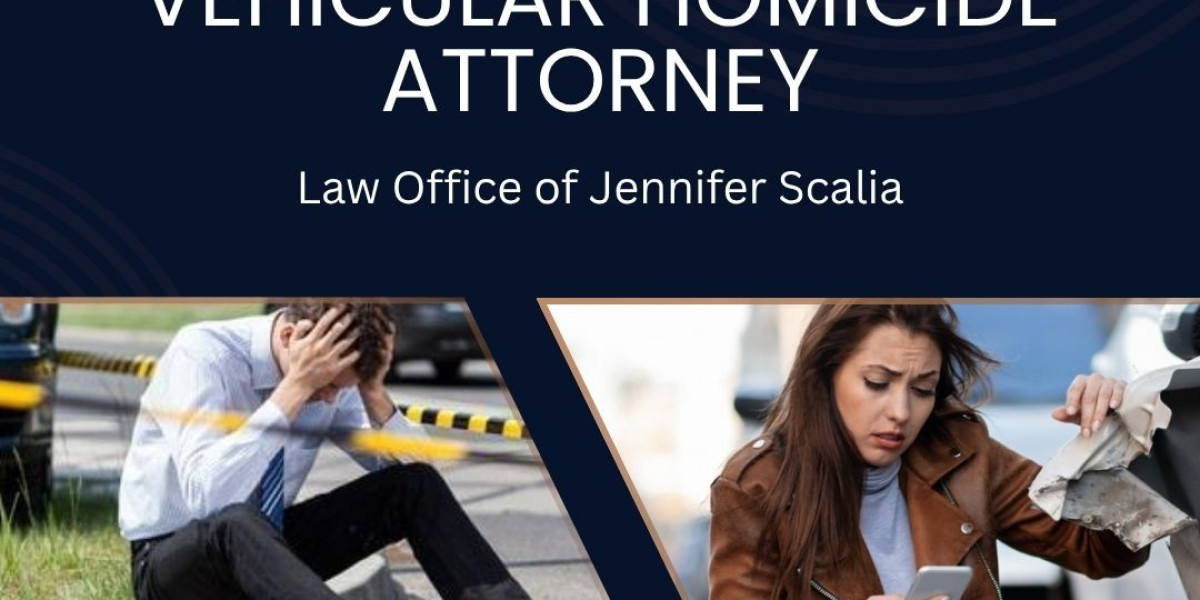The Role of Negligence and Intent in Georgia Vehicular Homicide Charges
Vehicular homicide is one of the most serious criminal charges a driver can face in Georgia. When a car accident results in the death of another person, investigators and prosecutors must determine why it happened and whether the driver’s negligence or intent played a role.
Understanding the difference between negligence and intent is essential because it determines the severity of the charge and the potential penalties. Anyone accused of such a crime should speak with an experienced vehicular homicide lawyer in Cumming, Georgia to understand their rights and defense options.
Understanding Vehicular Homicide Under Georgia Law
In Georgia, vehicular homicide also called homicide by vehicle occurs when a person unlawfully causes the death of another person through the operation of a motor vehicle.
Under O.C.G.A. § 40-6-393, vehicular homicide can be charged as first-degree or second-degree, depending on the circumstances of the case.
First-degree vehicular homicide usually involves serious traffic violations, such as DUI, reckless driving, or fleeing from police.
Second-degree vehicular homicide applies when the death results from a less serious traffic violation, such as running a red light or failure to yield.
Whether a driver acted negligently or intentionally plays a key role in how prosecutors classify the offense and how severe the penalties may be.
What Is Negligence in Vehicular Homicide Cases?
Negligence occurs when a driver fails to use reasonable care, resulting in the injury or death of another person. In simple terms, negligence means carelessness rather than deliberate harm.
Examples of negligent driving behavior include:
Speeding in poor weather conditions
Failing to yield the right of way
Running a red light or stop sign
Driving while distracted, such as texting or eating
Not maintaining vehicle safety (faulty brakes, lights, etc.)
In vehicular homicide cases, negligence forms the basis for second-degree charges. These charges are typically misdemeanors but still carry serious consequences, including jail time, fines, and a permanent criminal record.
A skilled criminal defense attorney in Cumming, Georgia can often challenge the state’s evidence to show that the driver’s actions, while careless, did not rise to the level of criminal negligence.
What Is Intent in Vehicular Homicide?
Intent involves a conscious decision or purposeful action that leads to another person’s death. In vehicular homicide, this does not necessarily mean the driver wanted to kill someone but it does mean their actions showed a reckless disregard for human life.
For example:
Driving at extremely high speeds in a school zone
Fleeing law enforcement during a chase
Driving under the influence of drugs or alcohol
Engaging in street racing on public roads
These behaviors often result in first-degree vehicular homicide charges, which are felonies in Georgia. Convictions can lead to lengthy prison sentences, license revocation, and life-long criminal records.
When intent or extreme recklessness is alleged, a vehicular homicide lawyer in Cumming, Georgia plays a vital role in analyzing the evidence and ensuring that the defendant’s rights are protected at every stage of the case.
The Difference Between Negligence and Intent
While both negligence and intent involve wrongdoing behind the wheel, the difference lies in the state of mind of the driver:
Factor | Negligence | Intent / Recklessness |
Awareness | The driver was unaware of the risk | The driver knew the risk and ignored it |
Example | Running a stop sign by mistake | Driving drunk or evading police |
Legal Impact | Often charged as a misdemeanor | Usually a felony offense |
Punishment | Up to 1 year in jail (misdemeanor) | 3–15 years or more in prison (felony) |
Georgia courts carefully consider these distinctions when determining the appropriate charge and penalty. That’s why understanding the difference between negligence and intent is essential to mounting an effective defense.
How Prosecutors Prove Negligence or Intent
To secure a conviction, prosecutors must prove that the defendant’s actions directly caused the fatal accident and that the behavior meets the legal definition of negligence or intent. They may use:
Accident reconstruction reports showing speed, distance, or point of impact
Eyewitness testimony about the driver’s actions before the crash
Surveillance or dashcam footage
Toxicology results if impairment is suspected
Cell phone records showing distraction or texting while driving
However, evidence can be flawed, incomplete, or misinterpreted. A skilled criminal defense attorney in Cumming, Georgia can challenge how the evidence was collected and whether it truly supports the charge of recklessness or intent.
Common Defense Strategies in Vehicular Homicide Cases
Every case is unique, but a strong defense often focuses on challenging the prosecution’s version of events. Common strategies include:
Disputing Causation:
Arguing that the defendant’s actions did not directly cause the death for instance, another driver, poor weather, or road hazards may have been factors.Challenging Evidence:
Questioning the accuracy of accident reports, witness statements, or test results.Lack of Intent:
Demonstrating that the defendant did not knowingly or recklessly disregard safety.Constitutional Violations:
Suppressing evidence obtained through unlawful searches or interrogations.
A knowledgeable vehicular homicide lawyer in Cumming, Georgia can identify weaknesses in the prosecution’s case, negotiate for reduced charges, or even pursue dismissal when evidence is insufficient.
Why Legal Representation Is Crucial
Vehicular homicide cases are emotionally charged and legally complex. A conviction can affect every part of your life from employment and finances to family relationships.
Having an experienced criminal defense attorney in Cumming, Georgia ensures that your rights are fully protected throughout the legal process. An attorney can help you:
Understand the charges and potential consequences
Gather and analyze evidence
Work with expert witnesses (such as accident reconstructionists or toxicologists)
Negotiate with prosecutors for a reduced charge
Present a strong defense in court
Taking action early gives your defense team more time to build a strong case and explore all possible legal options.
How Intent Can Change the Course of a Case
In Georgia, intent is the key factor that can turn a simple traffic accident into a felony homicide charge. Even when a driver did not mean to harm anyone, prosecutors can argue that reckless or drunk driving demonstrated “implied intent.”
This is why it’s so important to have a defense strategy that clearly distinguishes between a tragic accident and a criminal act. A strong defense can mean the difference between a prison sentence and a second chance at life.
Working with a seasoned vehicular homicide lawyer in Cumming, Georgia ensures that the nuances of negligence and intent are carefully examined and presented effectively in court.
Final Thoughts
Vehicular homicide charges in Georgia hinge on two crucial factors negligence and intent. These determine not just the nature of the offense but also the potential penalties and long-term impact on your life.
Understanding these legal distinctions is essential if you or someone you know is facing such charges. Speaking with an experienced criminal defense attorney in Cumming, Georgia can provide clarity, guidance, and a path forward.
The sooner you act, the better your chances of protecting your rights, your freedom, and your future.
For More Information Visit: https://lawofficeofjenniferscalia.com/
FAQs
1. What’s the difference between first-degree and second-degree vehicular homicide in Georgia?
First-degree involves serious traffic violations like DUI or reckless driving, while second-degree involves minor infractions such as failure to yield.
2. Can someone be charged with vehicular homicide without intent to kill?
Yes. Even without intent, a driver can be charged if negligence or recklessness caused a fatal accident.
3. What should I do if I’m facing vehicular homicide charges in Georgia?
Remain silent, avoid making statements to police, and contact a vehicular homicide lawyer in Cumming, Georgia immediately for legal help.










